A Struggle for Equivalence
Artistic Swimming, Synchronized Swimming or Water Ballet… We are not sure with what words this sport entered your life or whether it entered your life; because once we were a country that focused on raising athletes where the Olympics and World Championships were talked about more, nowadays we are watching this world on the screens and we are getting disconnected more and more.
We are together with İdil Akkuş and Ekin İlkbağ, who filmed the story of two companions for 6 years, Mısra Gündeş and Defne Bakırcı, who met through the synchronized swimming sport and have been fighting together for many years. They were once a part of the same team and made this sport the center of their lives. We have a long conversation about being a professional athlete, being a woman and dreaming in a field that is defined as a niche in Turkey. “Duet”, which won the Jury’s Special Award from the Documentary Film Category of the Antalya Golden Orange Film Festival, is now at the IKSV Istanbul Film Festival.
Before diving into the depths of the article, it is necessary to know this; this sport, which you can do alone, in pairs or as a team, is called a “duet” when performed in pairs. And the fact that the universe brings together some forces for you to make an award-winning documentary. In their first film, which they started as a graduation project; İdil and Ekin turned their communication with these athletes and their predisposition to sports into a good story; The fact that another dreamy director believed in themselves when they sought a starting point to finish their documentaries, which turned from a project into a movie, changed the whole equation. As a producer, Ali Bilgin joined the dream of Duet and İdil and Ekin’s first film was realized. The story of Defne and Mısra started to spread all over the world step by step through festivals. For us, this is a movie of dreams, friendship and struggle. Join the duet.
The common point among everyone at this table is that they have all performed this sport professionally at some point in their lives. Let’s start from here: how did synchronized swimming come into your life?
Mısra Gündeş: I was a child who was always looking for activities to do. I was searching for something to do, like figure skating which I was interested in. My mother would say, ‘I can’t take you there, it’s too far.’ Then, by chance, there were these girls who were doing synchronized swimming, and their father worked with my dad. He had distributed their competition CD saying, ‘My daughters did this.’ Then he reached out to me. When I saw it, I insisted on doing synchronized swimming, and then I started with a bit of trial and error.
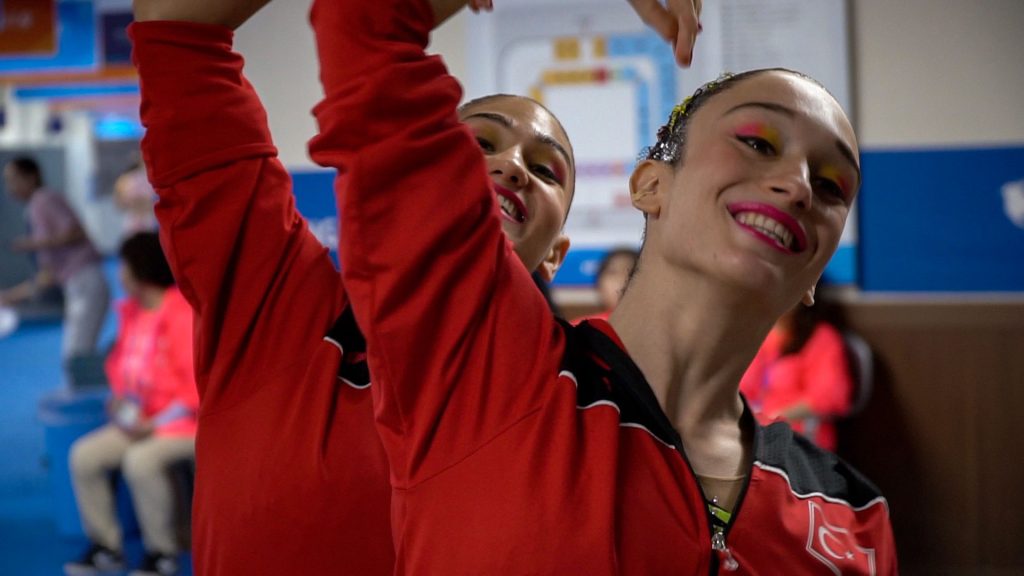
At what age did you start? Could you tell us a little about the nature of this sport?
İdil Akkuş: I was 8 years old when I started but before that I was swimming in the school team. I had a swimming background.
Defne Bakırcı: I first started with swimming, but of course, before that, as everyone knows, I have an ice skating background. Then I started swimming. After that, he was my classmate at the school I went to, and even a very close friend of mine at that time, which he researched and found. Our mothers were already in constant communication. Then they said that Defne should come too, let’s go together, let’s start sports together. That’s how I started too. I was 7-8 years old.
Ekin İlkbağ: We were on the same team when we first started. My mother saw the poster at Çevre College. There were only four or five people at that time when I first went to training. They tried it in one of the training, they made everyone do it, they made them swim, saying “Let’s see if she can swim?”. I don’t remember getting much out of that workout and said “Oh, I want to do this.”, which normally I used to watch this sport on TRT or something; ice skating, water ballet, etc. It’s attractive, but I wasn’t too impressed by that in the training, but I kept going. Then we did our first duet with Defne.
Actually, Ekin is the first partner of Defne…
Ekin İlkbağ: Yes, it was like that! I started with my mom asking, “Would you like to do?” Then, I continued to do for years, but I did not like that sport discipline.
How many years did you continue?
Ekin İlkbağ: I quit in 2013. I did it from 2007 to 2013.
İdil Akkuş: I have a similar story. My mother sent me to summer school so that I wouldn’t be idle. At the end of the summer school, the swimming instructor called and asked, “We are opening some courses in the winter school.” In other words, the club system lean on to the coaches where they are located. There is no deep rooted history of it. They asked me “Come to volleyball or synchronized swimming.” Everyone was playing volleyball, so I wanted to go to synchronized swimming.
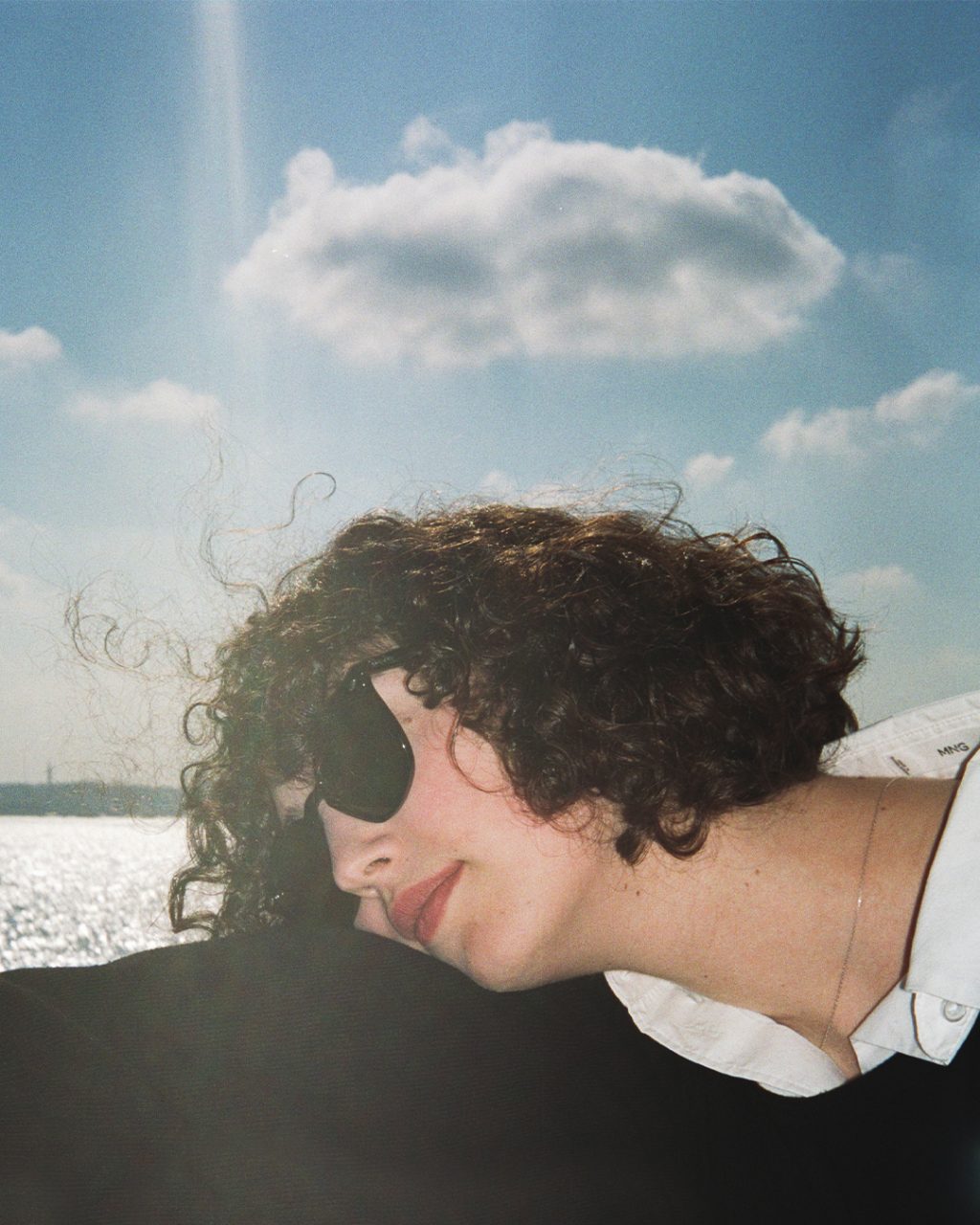
“We are in a country, even in a world, where our path is constantly blocked, and where we cannot live freely. Synchronized swimming is, in a way, a risky subject, because it is a class-segregated sport compared to others, and some people who haven’t heard of it until now are watching it, but no one has felt the movie from a place of arrogance because everyone has such problems in their lives. These problems also exist even while doing synchronized swimming, going to school, or walking on the street, so everyone can relate.”
– İdil Akkuş
And if we come to more recent times… How did the process of coming back together years later happen? How did this turn into a documentary?
İdil Akkuş: Ekin and I were in the same club before. Later on, she quit sports, and I started university. Naturally, we stopped seeing each other. But it wasn’t a conscious decision not to see each other. Then I started studying cinema. Ekin also decided to study cinema. So, we came together to do something else, to shoot something. It was never about this subject. At that time, it was the rise of Mısra and Defne. We knew each other, saw their success, and followed them. Then, I needed to make a graduation project, and my advisor suggested, “It would be better if you start with what you know.” This pushed us to create in this field. Because we were already troubled by not having had a very enjoyable sport past. We wanted to tell this story with our former teammates, who were both successful but also troubled. And everything started from there.
How did you feel when you got back together? How did you feel when you found out it would turn into a documentary?
Mısra Gündeş: It was always a strange process for us. One day they said, “We’re going to do this,” and at that time, the synchronized swimming subject they talked about was not as comprehensive but different. We thought, “These are our friends, and they have a camera.” We saw it as simple as “our friends filming us while we do our training.” We didn’t think there was anything beyond that until the last minute. It was quite late when we realized that this was a film and that it would be shown at festivals and on the silver screen.
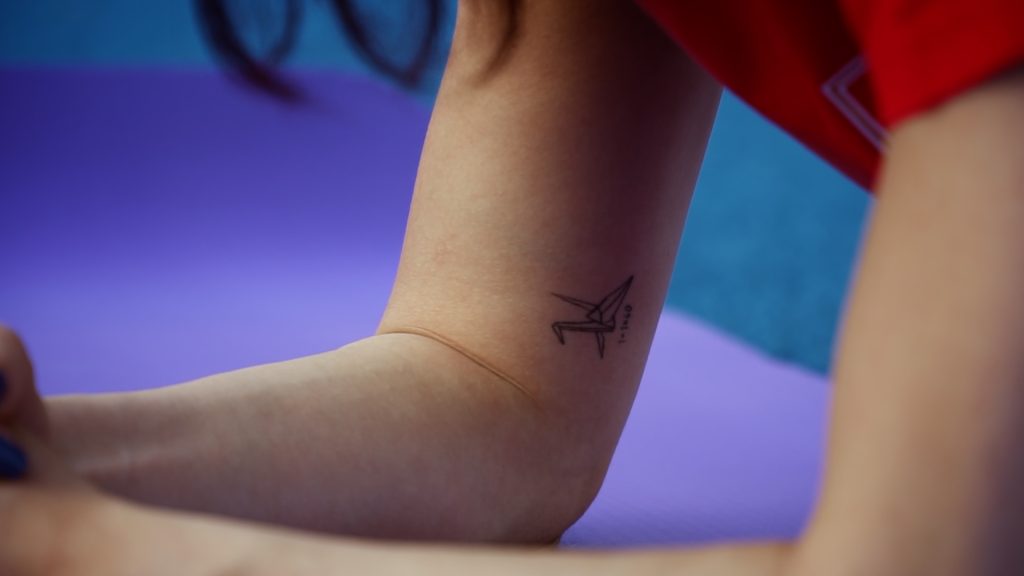
So, how does the graduation project is different from the film we watched?
İdil Akkuş: Actually, we started out to make two separate films. The first one would introduce synchronized swimming, and it would be a short or medium-length film. After that, we would make the film about Mısra and Defne’s story, which is the film we have now. But during the process, we realized that we didn’t want to make the first film. Then the two films merged, and we decided to tell both stories in the same film. We have another version that is more classical in its approach, with interviews with coaches, referees, and even with Defne’s interviews.
Which period does it cover?
Idil Akkuş: It covers the period after the first coaches were fired, but before the second coach came in. At that time, we all stopped and didn’t know what to do next. They didn’t stop entirely, but we took a break from filming. Then we resumed filming.
Can you describe the process of how the graduation project was transformed into a documentary film?
Idil Akkuş: We started watching documentaries. We had started making a documentary, but we weren’t watching too many of them, and that’s one of the reasons why, from my perspective. Second, we gradually realized that the friendship and the companionship between the two were the fundamental building blocks of the film. So we started focusing on that. In 2018, we switched to an observational camera and began to observe them more passively, since they were telling us a lot without us having to ask or write anything. Once we had enough material that could speak for itself, we continued from there.
Ekin İlkbağ: Duet’s journey took six years and it was a process where we developed our individual cinema journey; realizing what we liked and didn’t like, and what we wanted to do. When we set out, we didn’t know exactly what we were going to shoot. When you know what you want to get from the story, you approach it differently. We also realized what we liked to watch and that’s how this film came about.
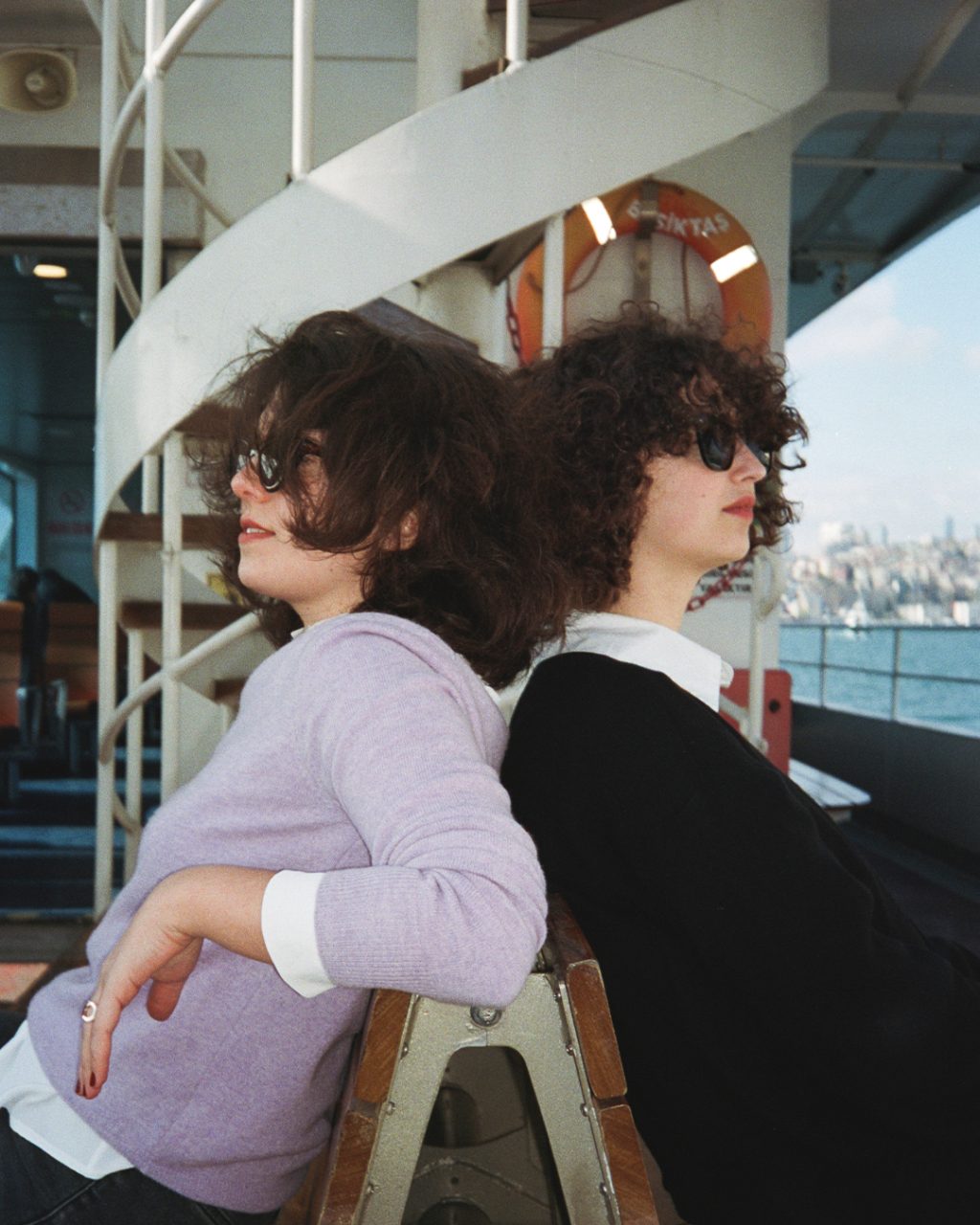
What were the difficulties you experienced as two directors during the shooting process of the documentary, which spanned about six years?
İdil Akkuş: We do not have a shooting team. Since it took six years and our producer joined in 2019, it was difficult on its own to push this process forward with our individual effort. We’re going to the set. Of course, these are the shots we call a set. They are in training as a way of working, they compete, they are at camp, they are at home, we follow them. We went to all of the international races with them. The curfew in the pandemic only stopped us; at one point, but then we handed over the cameras to them.
Ekin İlkbağ: Along with the pandemic period, there was a break in the film; Normally, when we needed Mısra and Defne to film something for such a long time, we would ask them if they could shoot it for us since we couldn’t be there and at such important moments they were going through. However, because sometimes they were hesitant and didn’t believe it would be a significant part of the movie. They would say things like, “We can’t shoot it. Don’t ask us to do that.” During the pandemic, we were worried about how we would manage to film without them since without them, there would be a huge gap. This was the biggest turning point for us as. The night the Olympics were postponed, I talked to Mısra, or rather, she sent a message, I think, saying that it was postponed and I don’t know what to do. I want to ask him for a shot so I can record his thoughts and feelings or something, but I hesitated so he was probably having a bad moment, I didn’t want to go over it. And without saying a word, Mısra suddenly send the scene to me which you watched in the movie.
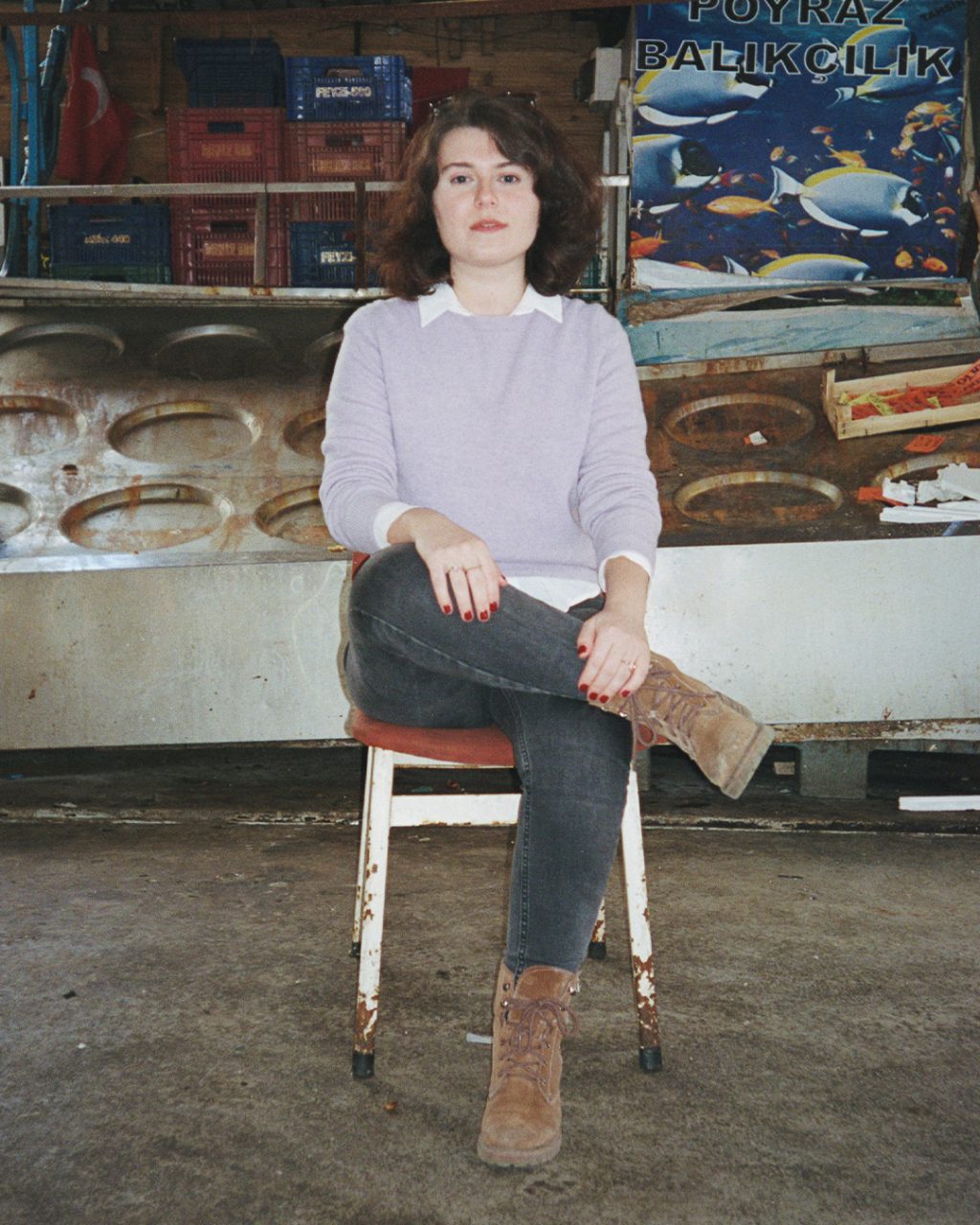
Defne and Mısra, what were the moments that caught your mind during the shooting of the documentary?
Defne Bakırcı: At one point during the filming of the documentary, we had the camera constantly rolling like a vlogger. I remember saying, “We’ve been recording for 25 minutes, but maybe they’ll only use 10 seconds of it.”
What kind of space do emotions such as togetherness and harmony occupy in your life?
Defne Bakırcı: Trust. No matter what happens or what goes through your head, you know your partner is going to be there for you. Simplest example; when you can’t wake up that morning, you know someone is going to wake you up. There will be someone holding you when you fall, or sometimes they will not bother to lift you and they will fall with you and say “We’re on the same level, don’t worry!”. For me best part of working with someone was knowing and feeling that there is a person who empathizes with you. Because when you look at it, we did a duet for years, 12 years, we didn’t have a single thought or a single argument or a fight in these 12 years.
Mısra Gündeş: This whole process felt so natural to me that I never questioned it. Defne was like a piece of my body, like my right arm or my left arm.
”Being a woman in this country is already difficult enough, but being a woman athlete is a story that tells how difficult it is, and witnessing the struggle of the directors who tried to finish this movie with the same difficulties, got me involved in the project.”
– Ali Bilgin
How did that sense of togetherness develop in the film crew and how did it affect you individually?
İdil Akkuş: We constantly had to adapt to different situations, which requires a lot of discipline and that’s easier when you are a team. I think it was nice to have someone else while working on the movie.
Ali Bilgin: The ability to adapt is a quality that both challenges and develops individuals the most. I think the faster you can adapt to the society, relationship, place, and time you live in, the quicker success and happiness will come. Being flexible to opposing thoughts and ideas, and being able to live together without trying to change the other person is the greatest sign of being civilized. When I think of adaptability, the idea of a world or relationship where everything is the same and everyone thinks the same is not what comes to mind. Rather, the idea of different perspectives and characters coexisting together is more prominent. Adaptability gains meaning through the coexistence of opposing views and different characters. The harmony of disharmony is beautiful.
The duet symbolizes a sisterhood story that represents struggle for us. The feeling of pursuing our dreams motivates and empowers us. What emotions does the movie evoke in your mind?Yes, you are at the center of the movie, but what emotions outside of it, motivates, excites, or prompts you to think when you listen to comments?
Defne Bakırcı: It was a disappointment for me. Not the movie, not what we watched. The movie was so beautiful and gave me all the emotions, but it didn’t give me what I was expecting at the end. I said ‘We really wanted to do this. We really wanted to achieve something. We gave up on going to college, we didn’t go to school. Not to mention; we gave up on our family and friends.’ It is a complete disappointment to see a movie that requires a lot of sacrifices and needs to be tied to a good ending, but ends without achieving those goals. In fact, while watching, I sometimes found myself saying the following things; ‘We were doing really well here. If we had continued like this, maybe it could have happened’. When I rewatched it, these thoughts keep coming back to me, I really feel sad. I cry every time I watch it.
Mısra Gündeş: It doesn’t end with a happy ending, but there is a happy ending in the background. That’s also true in real life. It’s very important to me that our friendship still continues, and despite experiencing a lot of disappointment while reaching this unhappy ending, we can still find each other and support each other. When I was watching it, I think I was already feeling that way, we always watched it side by side with Defne and held hands while crying. That really affected me.
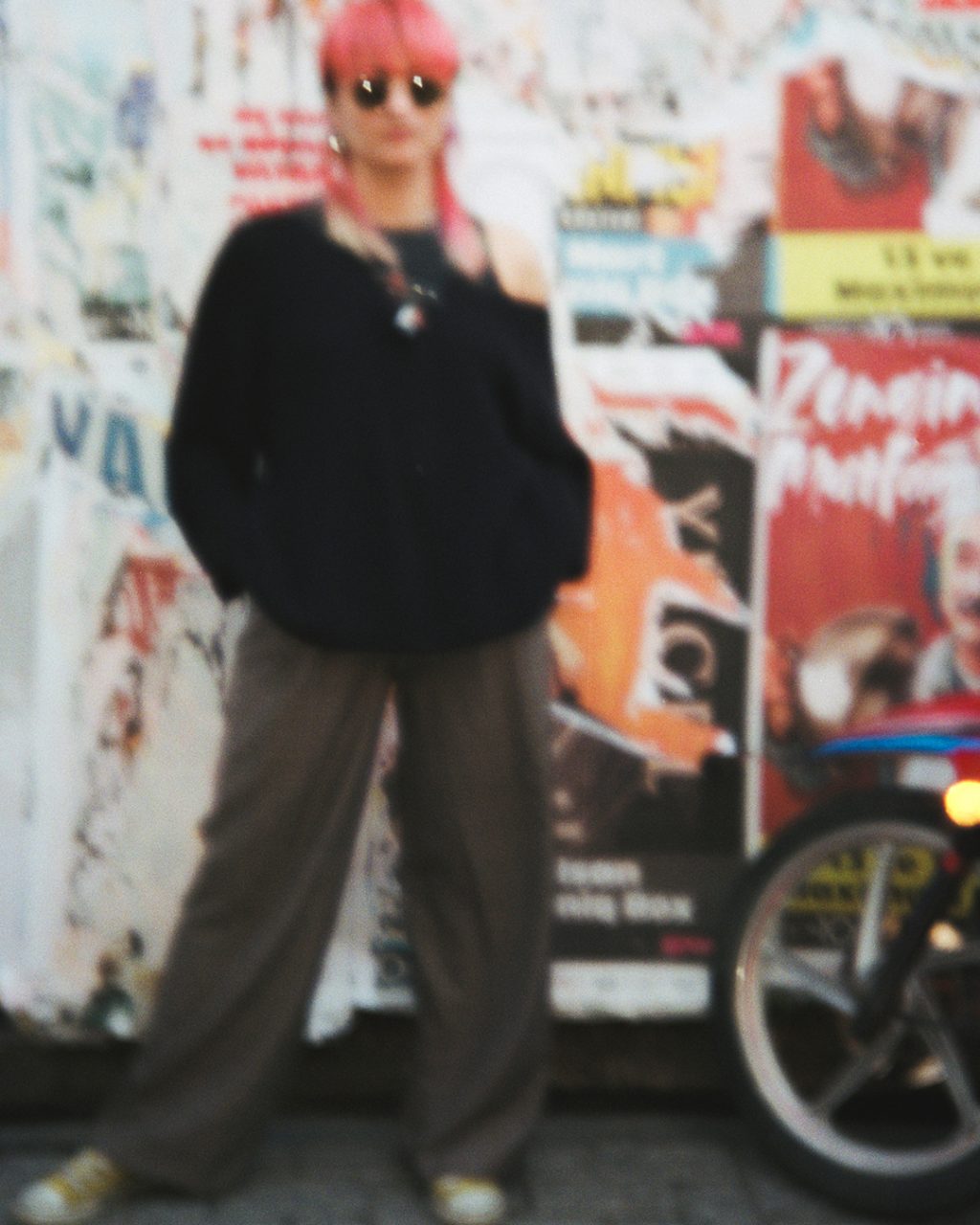
Ali Bilgin: Düet is a relationship movie that tells the story of two friends who hold on to each other despite being different characters, and whose greatest strength in the face of all kinds of difficulties is their belief in each other. While hope is the greatest force that keeps a person alive, being left alone while fighting for one’s dreams is the greatest helplessness. I think hope is to make people feel that they are not alone in difficult times, and the feeling of having no hope left for humanity is a very scary feeling. To make someone feel that they are not alone, that they are not helpless, and that you are there with them in their struggles, is the greatest hope that one can give to another person. Unfortunately, we experienced this very harshly during the earthquake process.
İdil Akkuş: There is a great effort behind performing this sport, and making this effort visible in some way was one of my first concerns when we started in 2016. We predicted that it could be filled with disappointments due to our own experiences as athletes, but that struggle was valuable to me. Actually, no matter what we try to do in Turkey, we always face such challenges. Yes, there is a federation, but it is still just a unit in this field of education. Actually, in every field, when we step out onto the streets, there are certain things in our lives that are not caused by us in general. We live in a country, even in a world, where our paths are constantly blocked and we cannot live freely. Artistic swimming is also a risky topic in a way, as it is a sport that is separated by social class and some people who have never heard of it before are also watching it, but nobody feels it from a arrogant position or feels that separation too much because everyone really has such problems in their lives. Even when doing artistic swimming, these issues exist. They are present when going to school, and they are present on the streets, so everyone can relate to it.
Ekin İlkbağ: I think we conveyed how beautiful it is to walk with friendship. I think it makes us feel how much inadequacy and obstruction we constantly encounter while trying to realize a dream that we all experience or just trying to exist, but we can’t overcome it without fighting it outside of our individual domains.
”There will be someone to hold you when you fall, or sometimes instead of struggling to lift you up, they will fall with you and say ‘We are on the same level, don’t worry!’ Knowing that there is a person who emphasizes with you, feeling it, was the best thing about working together.”
– Defne Bakırcı
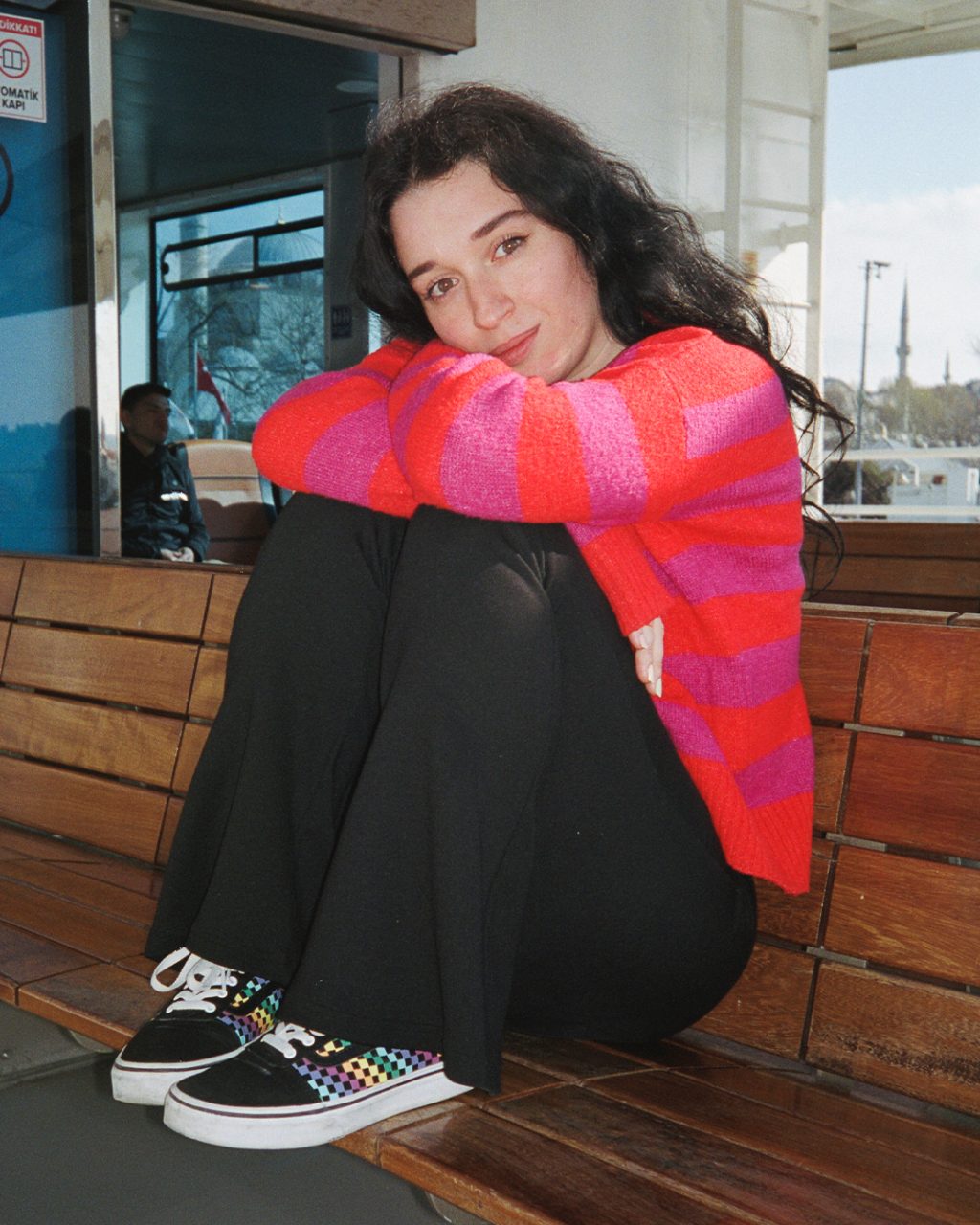
As two athletes who wanted to live their dreams but faced a country that couldn’t provide the necessary opportunities, how did you find the motivation to dream again and pursue different fields?
Defne Bakırcı: I’m going to Germany this weekend for a master’s degree. I want to pursue an academic career.
What is the field you will be pursuing your academic career in?
Defne Bakırcı: I am an English teacher. I am going to Germany for a master’s degree in linguistics. I plan to study linguistics there and continue with a doctorate and beyond.
The dream of becoming a more productive teacher and an academic…
Defne Bakırcı: Exactly. Sports are great, yes, but I knew I didn’t want to pursue this my whole life. I definitely didn’t want to stay in sports as a coach. Absolutely not. I said, “I already studied teaching, and I thought I could progress from there. It’s a field that I love, and a language that I love. I want to do something different, and most of my students don’t even know that I used to be an athlete because I don’t mention it. I’ve closed that chapter of my life. And I am continuing my life as a teacher, and I am in a much happier position now by doing a job that makes me much happier. So, it’s going well for me at the moment. I hope my future will be good at this point.
Mısra Gündeş: An unexpected turn of events, I am coaching. I am currently in a place where I do not want to be. I have been wanting to leave for some time now. For example, I was going to quit in March, but the race got postponed. I realized that I have a strong attachment to children and I can’t quit before the race because my eyes light up when I see the children. That’s why I used to go to training in the first place. I used to go to practice when I was feeling unhappy, hoping to change my mood and maybe have a conversation. Now, I still go to practice hoping to see the children and get that same feeling again. I am currently working as a coach and also in the process of applying for a master’s degree program as I want to continue my education. I also studied sociology before. I want to do a master’s degree in this field, maybe on inequalities, and I want to go to Germany. Maybe we will meet there.
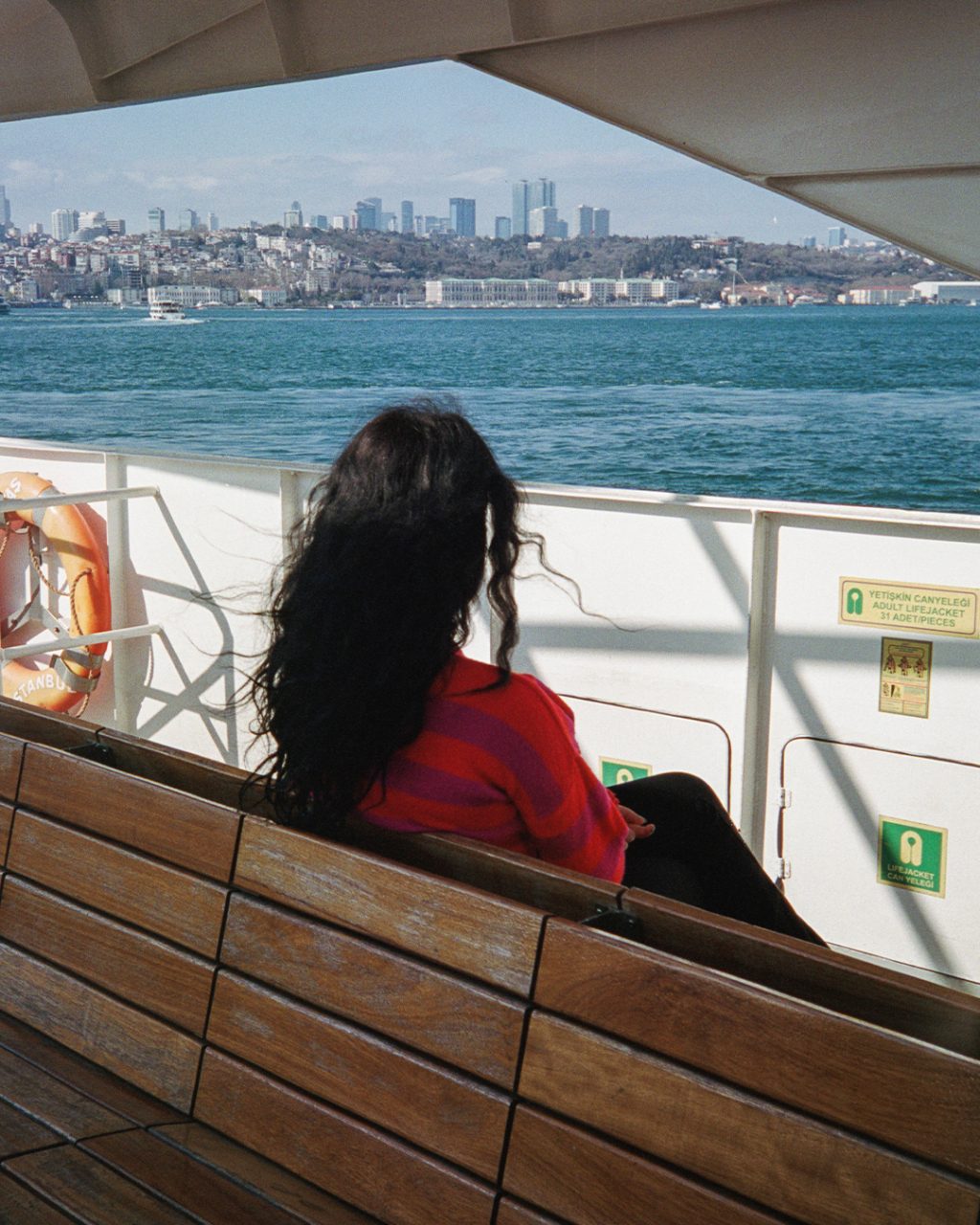
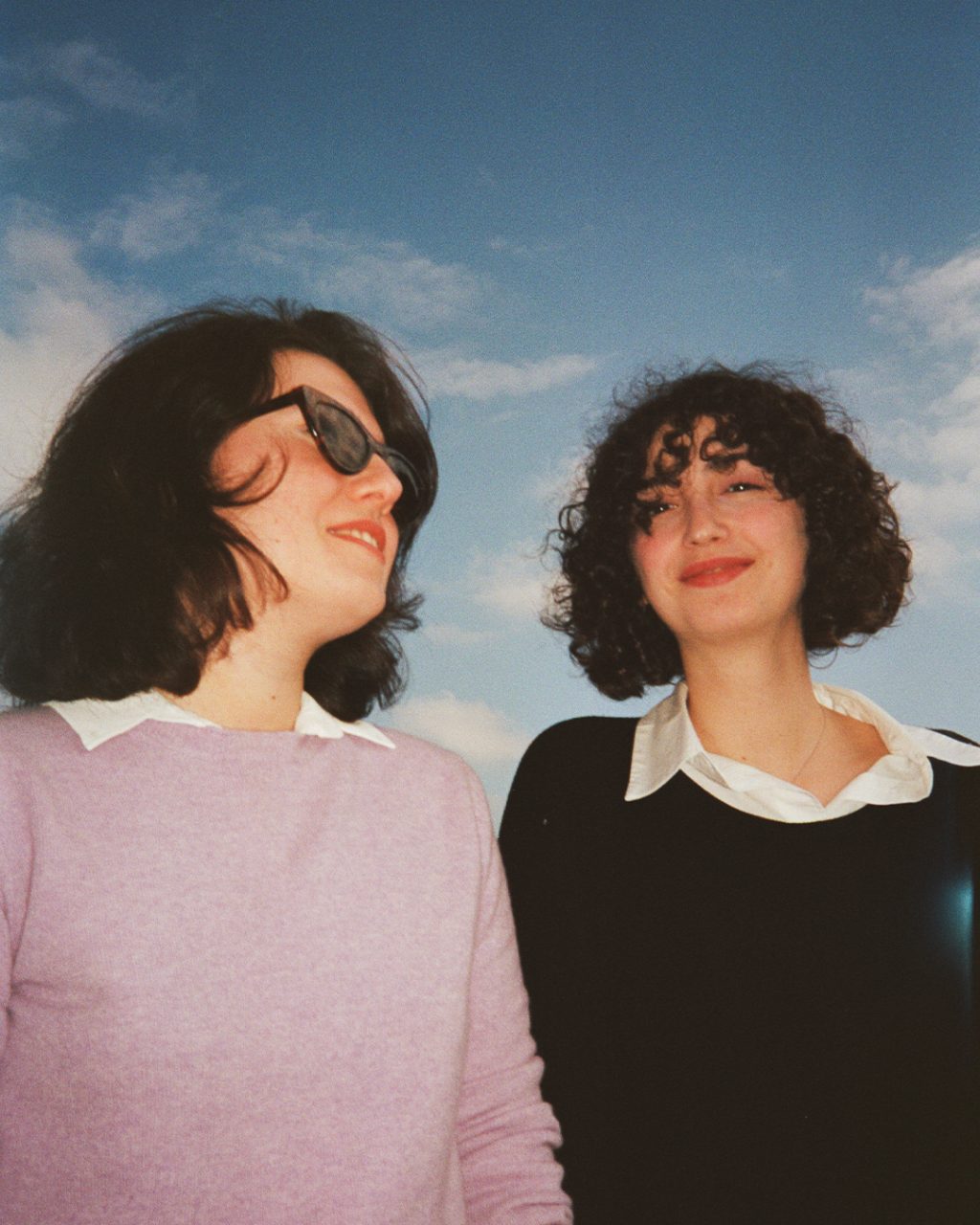
If we go back to the production process of the film; how did your paths cross with Ali Bilgin?
Ekin İlkbağ: When we first started, we only had the idea of trying to make a film, and everything evolved over time. Okay, this will be a story of friendship, a story of good news, and actually, we were brainstorming with İdil rather than going out with the camera as we did at the beginning. We started by writing a script. We brainstormed what could happen, what path they took, what we wanted to take away from their journey, and how we would turn it into a story. As we worked on it over time, our shoots became more focused, and we pursued the moments we wanted to capture. With the addition of producer Ali Bilgin, the film took on a more serious dimension for us as well.
İdil Akkuş: Someone else believed in us, someone else trusted us.
Biggest motivation!
Ekin İlkbağ: We were actually looking for sponsors to go to the Tokyo Olympics, which as you know, got canceled and no one could attend. We made this film with terrible budget management. I am a video editor. At that time, I was working with Ali Bilgin. While chatting, I said, “How will we go to Tokyo? What will happen?” He tried to help us find sponsors, he went to brands, but they did not support such a film due to its topic. Then he said, “I want to do it because you’re just at the beginning and it will cost you a lot.” Then he started to list the steps for us, such as the post-production process, remaining shootings, festival applications, and attendances. We also found it logical, and we said that it was good for us to have someone else who believed in us. So, we added another executive producer to the team, and they encouraged us to apply to the Antalya Film Festival. Antalya opened up a big opportunity for us because while we were happy that one more person believed in us, we witnessed many others starting to believe as well. And we were able to carry out the distribution process with the producer. It has a great advantage for us. For example, it never interfered with the content of our shooting. Same goes for the form. It even left almost everything to us in the editing process. Of course, we shared and took his ideas, but he always accepted that it was our film. It was a good support. Unfortunately, this is not taught much in schools, but a film needs a producer, it’s very important. For example, if Ali Bilgin had not joined us, we would have made this film and put it aside without creating such an impact.
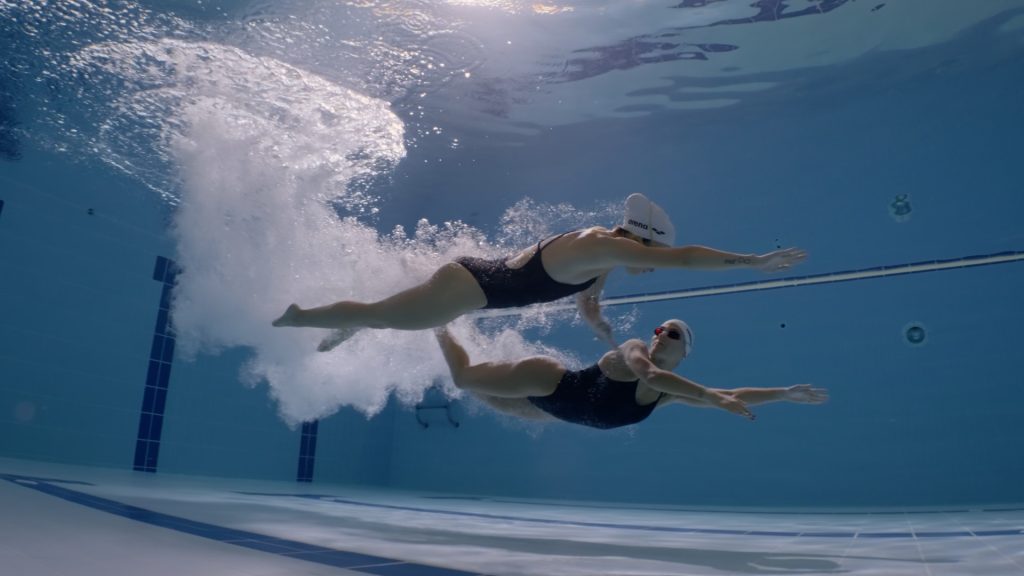
Ali Bilgin: I aimed to support two idealistic young directors who were trying to finish their film, and as I learned about the protagonists and the story of the film, my curiosity and excitement for the project grew. My priority was not actually to become the producer of the project, but to provide financial support for them to complete the project. I thought I could easily find this support and solve it with sponsors, but I was wrong because during my meetings, the system critique within the story was too harsh for the brands, and they were scared. That was the moment I realized I needed to become the producer of the film, and that’s where I decided to take the responsibility to make it happen. I felt great pride in being a part of and producer of the project. The pride that I felt was enough when our directors gave their award speech in Antalya. Additionally, it was a story that could convey the struggles of being a woman athlete in a country where being a woman is already difficult enough and fighting against the system alone to qualify for the Olympics. Witnessing the struggle of the directors who were trying to finish the film while facing the same difficulties was what got me involved in this project.
Interview by Duygu Bengi
Photography by Yağız Yeşilkaya